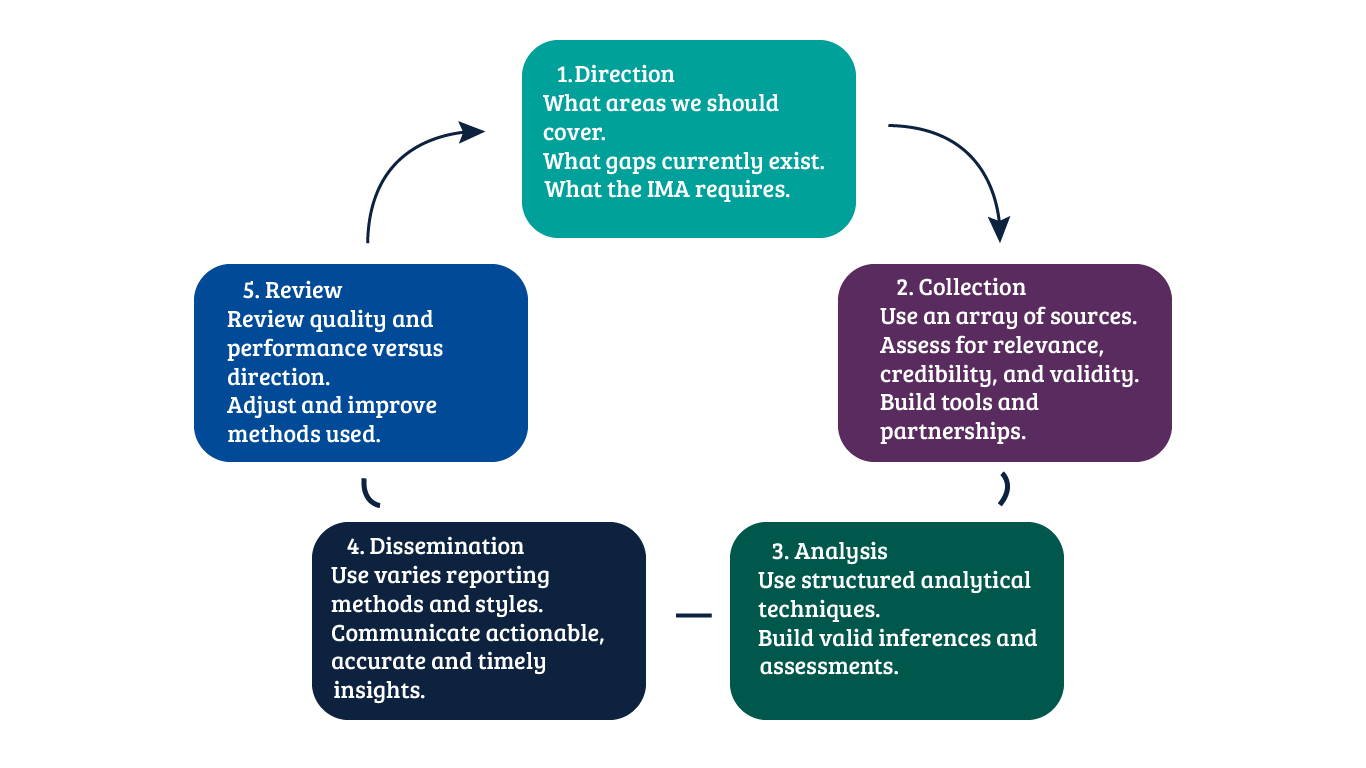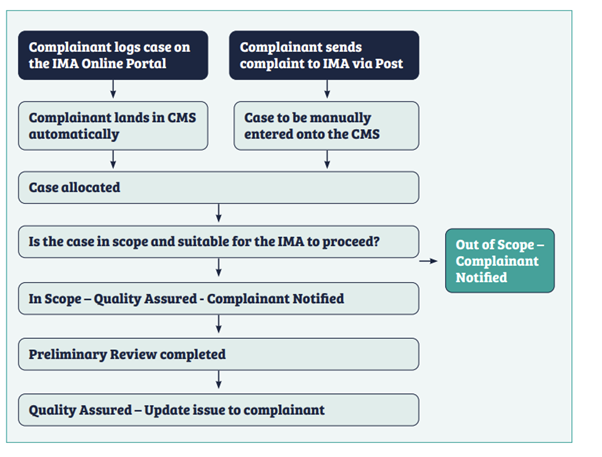The IMA effectively monitors the implementation and application of the relevant rights of qualifying persons in the UK and Gibraltar, a core role of the IMA is the production of intelligence. This intelligence will inform the direction of the IMA’s work, enabling efficient use of the IMA’s resources.

The direction taken by the IMA’s Intelligence Hub is informed by a number of considerations.
First, internal requests. To answer intelligence questions generated during the routine work of IMA staff.
Second, by intelligence questions generated by the intelligence hub through analysis of data collected. This includes the identification of intelligence gaps (such as the impact on particular rights or nationalities) which the IMA consider are important to the development of existing intelligence questions.
Third, high profile developments which feature in national media or are otherwise brought to notice to the IMA’s notice by community partner organisations or individuals.
Examples of strategic questions which will underpin our direction include:
Complaints made to the IMA will contribute a significant amount of information which can be assessed. The IMA will nonetheless proactively collect a wide range of additional information which will be processed into intelligence, sources such as:
Open source intelligence (“OSINT”) will be at the core, publicly available information from sources including:
Closed source intelligence, information which is not in the public domain. Sources such as:
The IMA will obtain, build, and maintain a range of tools to assist in collecting and analysing intelligence. Tools whose functions will include:
Information obtained by the Intelligence Hub will be assessed to provide assurance that information is relevant, credible, and valid in reference to our collection requirements. Assessed information will be collated and processed to be analysed.
Intelligence themes represent the collection and analysis stages of the intelligence cycle. Producing an intelligence theme is a method of keeping all collected information on a single issue in one place. The purpose is to determine whether the issue needs to be escalated to the Compliance and Inquiry team.
Themes are created based on issues that the team reasonably suspect could be a breach of The Agreements and have signs of possibly being general or systemic issues. All intelligence themes are periodically reviewed and monitored to ensure the IMA is appropriately informed when considering its next steps.
Intelligence themes are prioritised to determine where to apply the team’s resources. It is important to note that the existence of a theme does not mean the IMA will undertake an Inquiry on the issue or indicates a breach of The Agreements has taken place.
The IMA will adopt professionally recognised structured analytical techniques to ensure our monitoring work has appropriate rigour. For example:
These techniques and others will be combined with professional judgement in order to make grounded assessments about issues relevant to the IMA, which can then be communicated and actioned across the organisation.
The IMA will adopt common analytical standards:
The Intelligence Hub will adopt common language with quantitative meaning to effectively communicate the probability and confidence involved in our assessments.
This language ensures judgements are understood as intended. This also ensures our monitoring work uses clear judgements.
Nearly all IMA monitoring work will result in internal recommendations. These are highly likely to inform operational and strategic decision making such as:
In some circumstances, the IMA may elect to share analysis (or insights from it) in the public domain in order to fulfil its role in promoting rights.
EU and EEA EFTA citizens and their family members may complain to the IMA if they are concerned that their rights have been, or may be, breached.
UK citizens who are in scope of the agreement are also able to complain. For example, a UK citizen in receipt of a state pension that relies on the social security coordination with an EU Member State.
Qualifying persons can also complain if they consider that a public body has acted, or is planning to act, in a way that prevents them from exercising their relevant rights.
The IMA will not intervene in individual cases unless it is indicative of a general or systemic failing which can be addressed by focussing on a specific case.
The IMA Website provides information to the public and potential complainants on the:
Complaints will be submitted to the IMA through the complaint portal on the website and assigned a case reference number. Complaints will be automatically entered onto the Case Management System (CMS).
All information received via the CMS will be subject to UK GDPR and will be treated accordingly. Complainants will be referred to the IMA Privacy Notice prior to the submission of a complaint and asked to confirm they have understood that notice.
The IMA recognises that it may not be possible for everyone who wishes to make a compliant to do so electronically, therefore a copy of the complaint form is available on the website to download. It is also available by post upon request. Any submissions received by post will be manually entered onto the CMS by the Intelligence Hub. All information received via post will be subject to UK GDPR and will be treated accordingly. Complainants will be referred to the IMA Privacy Notice prior to the submission of a complaint and asked to confirm they have understood that notice. A copy of the IMA’s privacy notice will be sent to the individual alongside the complaint form.
The IMA recognises that it may not be possible for everyone who wishes to make a compliant to do so electronically, therefore complaints can be submitted via the telephone. Any submissions received by telephone will be manually entered onto the CMS by the Intelligence Hub. All information received via the telephone will be subject to UK GDPR and will be treated accordingly. A copy of the IMA’s privacy notice will be sent to the individual should they be unable to access the online version.
Third parties including individuals as well as advocacy and support groups are able to report a complaint via the IMA’s online portal, by post, or by telephone on behalf of individual citizens when their consent has been received.

The complainant will be informed of the preliminary review outcome.
The IMA will have particular regard to general and systemic issues. A general or systemic issue may be defined as an issue, problem or change in policy or practice which is inconsistent with the relevant rights that it negatively effects, or has the potential to effect, qualifying persons within scope. It may be caused by, but is not limited to, one or more of the following:
To help inform their assessment, the Intelligence Hub should consider the complaint to identify whether it:
Potential indications that an issue raised in a complaint may be general or systemic include: